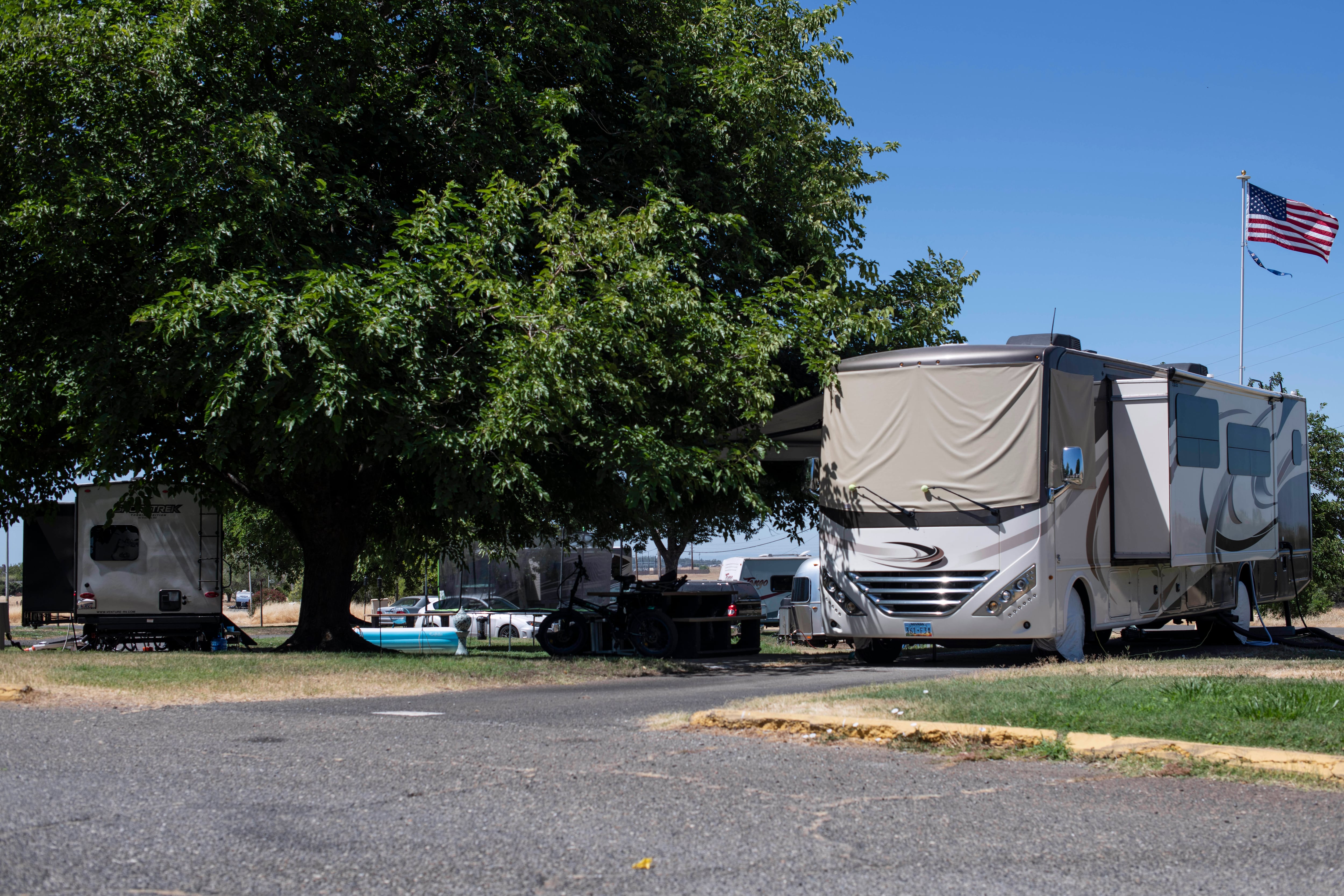As military families struggle in a moving season that’s more turbulent than any in recent history— because of shortages of moving companies and housing — Army officials are advising soldiers to contact their chain of command if they’re having trouble.
“Up and down the chain of command, the Army recognizes moving is a stressful time for any soldier and any family. No soldier has to do this alone,” said Maj. Gen. Omar Jones, deputy commanding general of Installation Management Command, during a call with reporters Thursday.
“The installation team, the chain of command, from the sergeant all the way up to Army senior leaders, are all in to help work with the soldiers to give them options and to work them through the process to reduce the stress so they and their families have a successful [permanent change of station] move,” he said.
Troops and families of all service branches are feeling the brunt of a widespread housing crunch. Many have said they are taking a large financial hit, having to pay out of pocket for extended hotel stays as they wait for housing. In some cases, they’ve had to rent places that exceed their housing allowance by $600 or more each month, yet are often far away from their installation.
Many who are trying to buy a house report bidding tens of thousands of dollars more than the listing price, while still being outbid in a fiercely competitive housing market.
Then there’s the problem of moving companies that struggle to find workers, deal with shortages of equipment and other issues in a busy military and commercial moving season that may continue for weeks, according to an industry source.
All of this is exacerbated by the pandemic.
About 54,000 soldiers are moving between April 1 and Sept. 30 this year, with a total of 92,000 shipments, because some soldiers have multiple shipments — such as a partial personally procured shipment and a regular government-arranged household goods shipment. The Army has moved about two-thirds of those people and shipments so far, Jones said.
Jones said the four installations experiencing the most challenges right now are Joint Base Lewis McChord, Wash., in a region with Army, Navy, Air Force and Coast Guard members; and Fort Drum, N.Y.; Fort Knox, Ky.; and Fort Irwin, Calif.

The Army has already taken some steps to help soldiers caught in these situations, such as giving soldiers flexibility in report dates.
Soldiers with report dates from July 6 through Sept. 30 can report to their new duty station up to 30 days early and up to 20 days later than the report date on their orders. Military personnel divisions can defer soldiers up to 60 days from the original report date but no later than Nov. 10.
In addition, Jones said, Army housing offices are working with off-post landlords to find more rentals, and are now encouraging off-post hotels to provide cheaper rates for soldiers who find themselves having to stay longer than the current 10 days covered by Temporary Lodging Expenses entitlements. Housing officials are asking for hotels to set rates equal to the soldier’s Basic Allowance for Housing, which kicks in after TLE ends.
This is similar to what the Army IHG Hotels system announced this week. Their 40 on-post hotels in the United States will provide service members the option of applying for temporary lodging at BAH rates until they find permanent housing.
While they don’t have any information about whether any off-post hotels have lowered their rates yet, Jones said, ‘”we anticipate that off-post hotels may be following their lead in the future, hopefully the short future.”
RELATED

For weeks, military officials have been considering whether to allow extensions of TLE payments for longer hotel stays. Officials are also exploring other options, such as a temporary, out-of-cycle increase in the housing allowance to help service members find rental housing in the booming housing market, which has also affected the cost of rentals in many areas.
Meanwhile, no family should ever feel they have to buy a house, or rent off post if they want to live on post, Jones said. “We encourage them to talk to their chain of command, if they feel they’re having to make bad choices.”
The chain of command has direct access to housing, transportation, and personnel officials on the installation. And before soldiers start covering expenses out of pocket, they should contact their chain of command.
Officials encourage soldiers to plan and prepare for their move, which includes setting up housing before they arrive at a new duty station. Soldiers are getting new assignment instructions, on average, 166 days ahead of report date, and getting orders at least 120 days before the report date.
Jones said most privatized housing partners allow troops to get on the waiting list at the next installation before leaving their current duty station. But Jones said officials are seeing “slightly increased” wait times for housing across their installations, compared to last summer and the summer before.
Regardless of how much lead time they have and how much they prepare, some service members aren’t able to get their household goods moved and/or find housing.
RELATED

The chain of command will help them look at what their options are, said Col. Courtney Abraham, director of the Army Personal Property Lead Element at Army Sustainment Command.
Some of those options include a delay in the move and later report date, coordinating for a deferment, the family choosing to do a personally procured move by arranging it themselves, or having a moving company pick up the household goods and store it locally until it can be moved later.
Jones said there have been about 13,000 applications for personally procured moves, with about one in four soldiers choosing to do either a partial or full PPM move. That’s consistent with previous years.
“No service member of family should feel like they have to do a PPM. There are lots of options a chain of command can execute,” he said.
While the soldier can now receive 100 percent – or more – of the cost the government would have paid a moving company, there is an additional workload for the soldier and family, he added.
Depending on how much of the work the soldier and family do themselves, and with careful planning, some people can make money doing these moves.
Karen has covered military families, quality of life and consumer issues for Military Times for more than 30 years, and is co-author of a chapter on media coverage of military families in the book "A Battle Plan for Supporting Military Families." She previously worked for newspapers in Guam, Norfolk, Jacksonville, Fla., and Athens, Ga.




